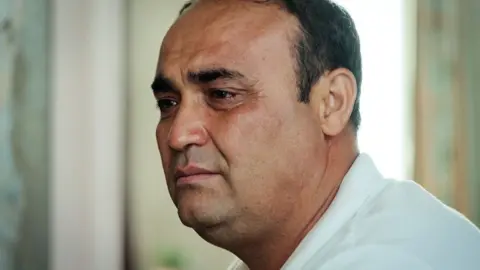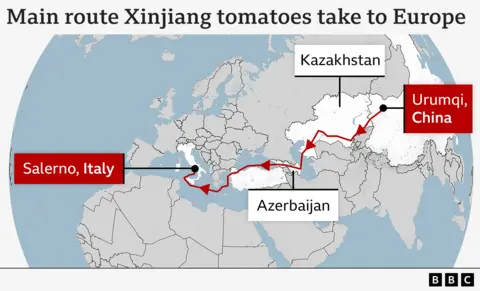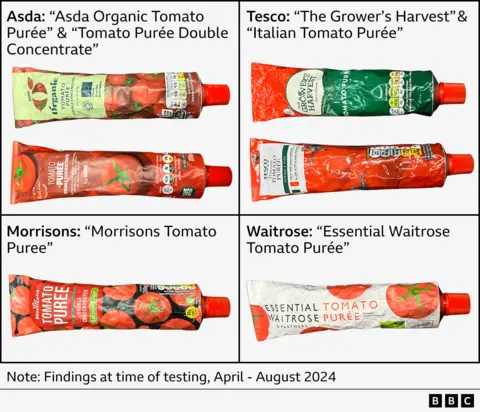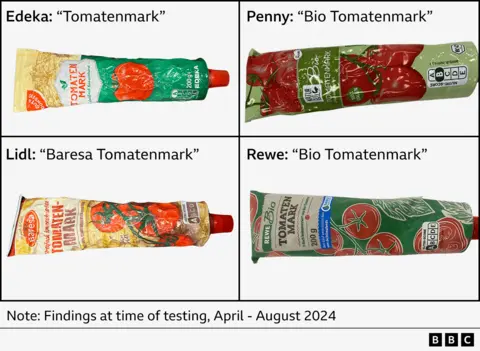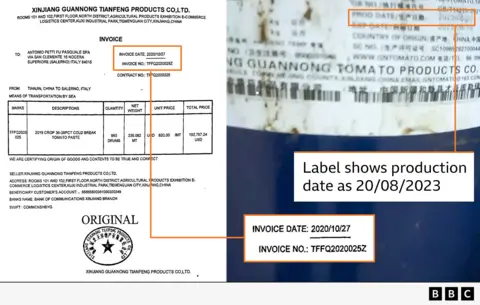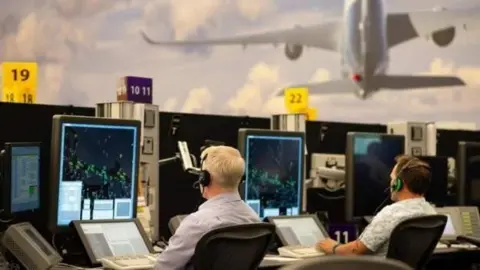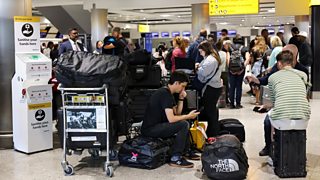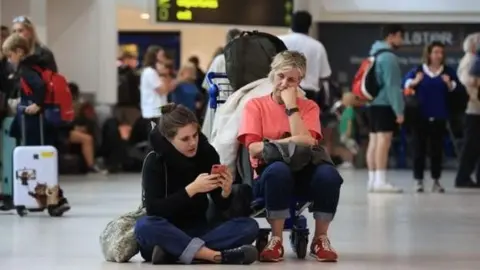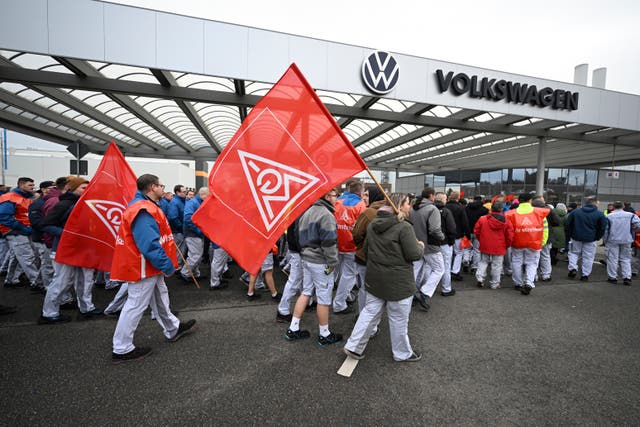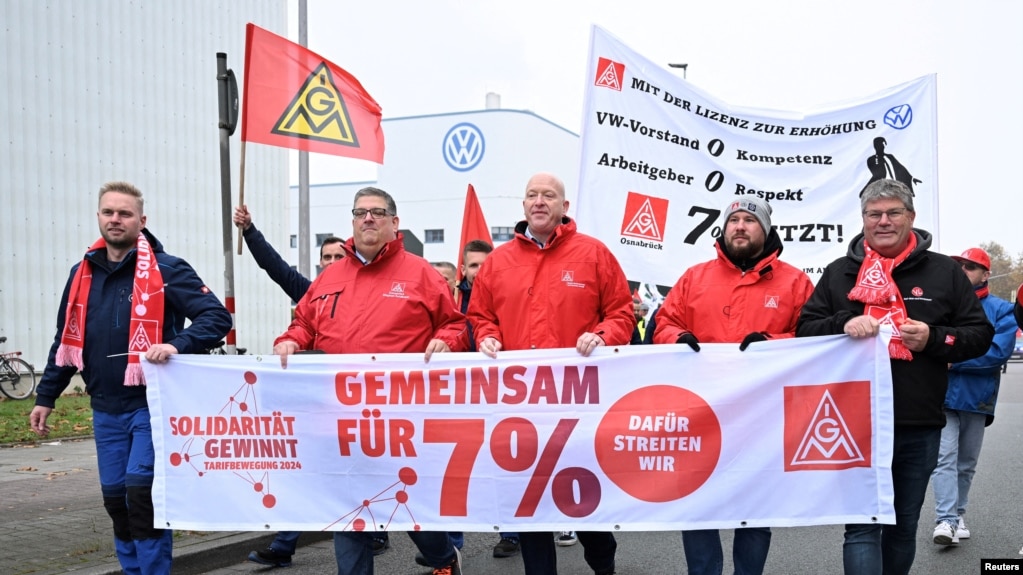Trump Pick for Pentagon Chief Is Bad For Military Families and Vets

Pete Hegseth, Youtube screengrab.
Much media coverage of Pete Hegseth’s nomination as Secretary of Defense has focused, understandably, on controversial things he has said or done, along with his complete lack of administrative experience relevant to running a federal government department with a $920 billion budget and a workforce of three million.
But anyone in charge of the Pentagon also gets to oversee the Military Health System (MHS), which provides either private health insurance coverage or direct care for over 9.5 million service members, military retirees, and their families. As Defense Secretary Lloyd Austin noted in a recent DOD National Defense Strategy report, the MHS mission is to ensure that active duty personnel and their dependents are well-served by a skilled cadre of “medical personnel in uniform,” who number nearly 170,000.
Hegseth served as an ROTC-trained Army officer deployed to Iraq, Afghanistan, and Guantanamo Bay and is a longtime critic of “government healthcare,” claiming that it “doesn’t work.” So if Hegseth succeeds Austin, Pentagon officials trying to end a failed experiment with MHA privatization may find themselves ordered to march backward.
Rather than being upgraded and improved, the DOD’s network of military hospitals and clinics would remain under-resourced. And more of the MHA’s $61 billion annual budget would be spent on private insurance coverage that has failed to meet the needs of many service members and their dependents, particularly in rural areas.
A White House Advisor
During the first Trump Administration, Hegseth was a White House advisor who pushed the Department of Veterans Affairs (VA) to expand care outsourcing for nine million former service members. Trump’s first VA Secretary, a hold-over from Barack Obama’s administration, dragged his feet on implementing this ill-advised policy.
As a result, Dr. David Shulkin, an experienced hospital system administrator in the private and public sectors, was fired by Trump in 2018 after keeping him around for over a year. In his memoir, It Shouldn’t Be This Hard to Serve Your Country, Shulkin blames his downfall on Hegseth, who “never worked at the VA, knew nothing about managing a healthcare system, and had little understanding of the clinical and financial impact of the policies he was advocating.”
Hegseth does have a background as “a capable midgrade officer” who earned two Ivy League degrees and Bronze Stars, plus media experience ranging from writing for the Princeton Tory, a conservative undergraduate publication, to opining about military and veterans’ affairs on Fox & Friends Weekend where he’s a host. In any other Republican administration, this resume would qualify him as a Pentagon press secretary.
That Hegseth has instead risen to a cabinet pick is a testament to the continuing impact of the Koch Brothers-backed Concerned Veterans for America (CVA). After a failed bid to become the GOP nominee in a 2002 Republican primary race for a U.S. Senate seat in his native Minnesota, Hegseth became CVA’s first CEO and a leading advocate for turning veterans care over to private doctors and hospitals.
CVA was an astroturf upstart in veterans’ affairs and an outlier in pushing VA privatization. Traditional Veterans Services Organizations (VSOs)—like Veterans of Foreign Wars, American Legion, Disabled American Veterans, or Vietnam Veterans of America—represent millions of veterans. Their members pay dues and elect their leaders. They have local chapters and national conventions. They have roots in the community and provide valuable services to individual veterans who need help filing disability claims for service-related conditions, which qualifies them for VA care.
VSO lobbying victories include the passage of the PACT Act of 2022. This legislation made VA benefits and related medical coverage easier to obtain for nearly a million veterans, including many whose health was damaged due to burn pit exposure during post-9/11 wars in the Middle East. (Hegseth initially applauded and then criticized the wars in Iraq and Afghanistan, a flip-flop characteristic of his career. As Iraq war veteran and VoteVets co-founder Jon Soltz says about him, “I have been debating Pete Hegseth for years, and I can’t tell you what he stands for other than himself and his own ambition.”
With few actual dues-payers, no VSO-style membership service programs, and a political agenda bankrolled by libertarian billionaires, CVA helped pass few bills that benefited the nation’s 19 million veterans. Instead, during the Obama era, the media-savvy group became a battering ram against tax-payer-funded healthcare in any form, a longtime bête noir of the Kochs.
Hegseth became their most visible and effective mouthpiece in a wide-ranging campaign to discredit VA care and the Affordable Care Act (ACA). In 2013, CVA ran video ads warning, in Hegseth’s words, that all Americans would soon “face long wait times, endless bureaucracy, and poor service” if Congress expanded health care access by subsidizing private insurance coverage. The result, he claimed, would be billions of dollars wasted on “a nationalized health care plan that will bring the same bureaucratic dysfunction to the larger U.S. healthcare market”–as if the VA were a model for “Obamacare,” which it certainly wasn’t.
A year later, this propaganda offensive, closely coordinated with right-wing Republicans on Capitol Hill, claimed the scalp of retired four-star General Eric Shinseki, the Vietnam veteran who was Barack Obama’s first VA Secretary. Shinseki became the fall guy for a localized scandal involving misconduct by a few VA hospital managers in Phoenix. Their doctoring of data on medical appointment wait times—to earn bonus payments—led to CVA-amplified false claims that 40 Phoenix area vets had died due to delayed care. The result was that mainstream media packed journalism at its worst, and there was growing pressure for more out-sourcing of VA care despite its higher quality, lower cost, and greater accessibility than private alternatives.
On Capitol Hill, bi-partisan majorities passed the VA Choice Act of 2014 and, four years later, the VA MISSION Act. Both opened the floodgates for increasingly costly and disastrous privatization of the nation’s most extensive public healthcare system. CVA helped engineer the passage of each measure. After stepping down as CEO of Concerned Veterans of America ten years ago and becoming a Fox News commentator, Hegseth continued to advise President Trump on veterans’ affairs; other CVA alums served in official positions at the White House or VA headquarters in Washington.
Hegseth’s return to the conservative media eco-system of his college years has paid handsome rewards; he has become a multi-millionaire (despite two divorces) as a Fox & Friends talking head, paid speaker, and bestselling author of The War on Warriors, a critique of what he calls a “woke military.” Like other high-paid former military officers, his benefit package in the private sector leaves Hegseth unlikely ever to need the VA, federally subsidized insurance coverage obtained through the ACA, or, when he retires, Medicare coverage. If confirmed, his pay as DOD Secretary will be a mere $246,000 per year, but with lucrative “revolving door” opportunities in the future, when and if he transitions back to the private sector from the Pentagon.
Meanwhile, enlisted personnel and veterans from poor and working-class backgrounds bear the brunt of failed CVA-backed experiments with the privatization of the Military Health System and the VA. Under Trump and Biden, the DOD was flush with money for military aid, expensive new weapons systems, and base maintenance worldwide. Nevertheless, the Pentagon cut healthcare delivery costs for its workforce, retirees, and dependents.
Military hospitals were closed, staff positions cut, and several hundred thousand more patients were shifted to TRICARE, a federally funded form of private insurance. Newcomers to the private sector soon reported having greater difficulty getting timely medical appointments or accessing care in areas of the country with a shortage of primary care providers and specialists.
The Pentagon found that contracting out left its hospitals and clinics “chronically understaffed” and less able to “deliver timely care to beneficiaries or ensure sufficient workload to maintain and sustain critical skills. After reassessing the situation, the DOD launched an effort to “re-attract” patients back to the MHS. As studies have shown, in-house care produces better outcomes at lower cost, with fewer racial disparities—an essential advantage for a patient population of nearly 40 percent non-white.
If Hegseth becomes DOD Secretary by recess appointment or Senate confirmation, he will undoubtedly stop bringing TRICARE beneficiaries back into the MHS. He will also halt efforts to rebuild the DOD’s in-house healthcare delivery capacity..
And Hegseth will not be the only ideological foe of “government healthcare” in a high-level Trump Administration position. His fellow cabinet nominee, former Congressman Doug Collins, an Iraq War veteran from Georgia, will be eager to pick up where Robert Wilkie, Trump’s second VA secretary, left off with his privatization efforts in 2021. And, with the biggest impact, Dr. Mehmet Oz, the TV celebrity picked by Trump to run the Centers for Medicare and Medicaid, will further undermine traditional Medicare by replacing it with for-profit Medicare Advantage plans, on a more universal basis.
On all three fronts, these Trump appointees will weaken the public provision of healthcare that currently benefits more than 80 million people, making expanding such programs even more difficult.





